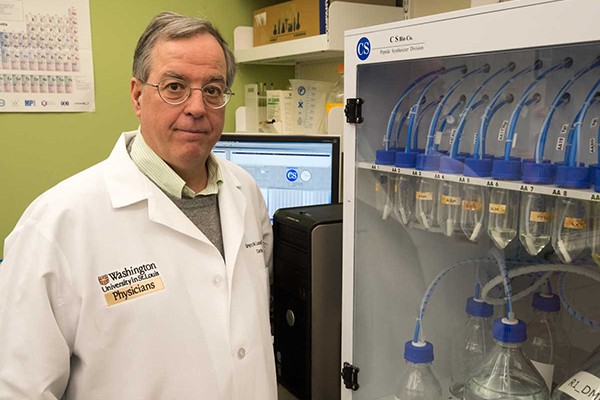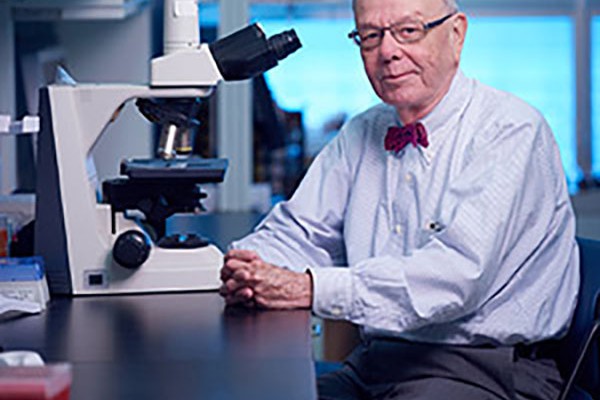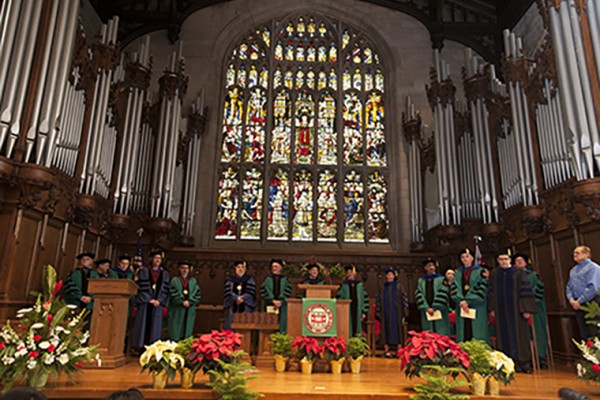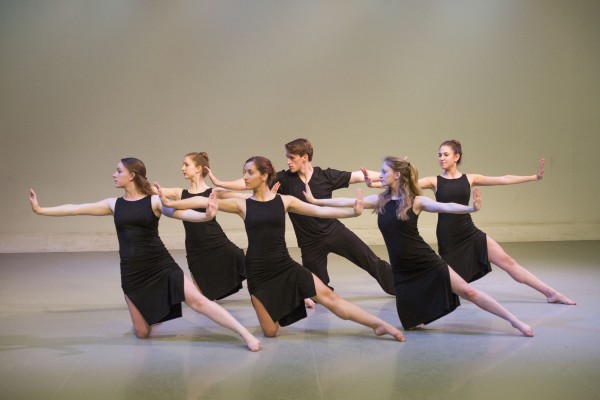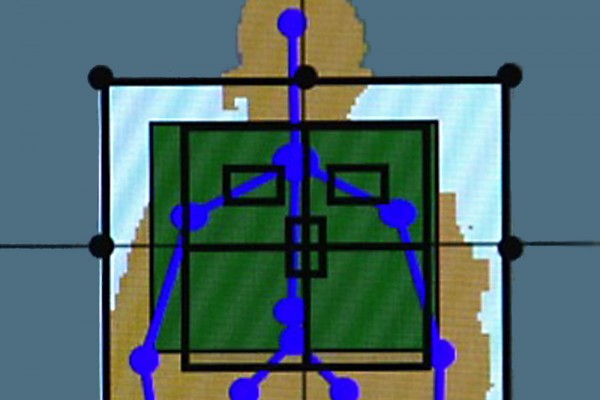Trustees meet, discuss graduate and professional education
The Friday, Dec. 4, meeting of the Washington University in St. Louis Board of Trustees focused on graduate and professional education, according to Chancellor Mark S. Wrighton. The board also elected a new trustee. Distinguished alumnus F. Gilbert Bickel III (BSBA ’66), a senior vice president with Wells Fargo Advisors, was elected as a new Ethan A.H. Shepley Trustee.
Scientists receive $13.7 million to develop new multiple myeloma treatments
Researchers at the School of Medicine have been awarded $13.7 million from the National Cancer Institute (NCI) to create new therapies for multiple myeloma, a cancer of the immune system. Led by Samuel Achilefu, PhD, (pictured) and Gregory Lanza, MD, PhD, at the newly created Center for Multiple Myeloma Nanotherapy, scientists will work to develop nanomaterials and drugs to treat the disease.
Unanue receives Sanofi-Institut Pasteur Award
Emil R. Unanue, MD, an internationally renowned immunologist at the School of Medicine, has received a Sanofi-Institut Pasteur Award for his invaluable contributions to the field of immunology. The annual awards honor scientists who have made outstanding contributions to biomedical research in fields that profoundly affect global health.
Ceremony to recognize December graduates
More than 275 Washington University in St. Louis degree candidates — the largest group to date — are expected to attend the December Recognition Ceremony at 1:30 p.m. Saturday, Dec. 5, in Graham Chapel on the Danforth Campus.
Fortner receives SNO Emerging Investigator Award
John Fortner, PhD, assistant professor in the School of Engineering & Applied Science at Washington University in St. Louis, has received the 2015 Sustainable Nanotechnology Organization Emerging Investigator Award.
Physicist awarded $1.3 million for development of detectors for hard X-ray telescopes
Henric Krawczynski, PhD, professor of physics in Arts
& Sciences at Washington University in St. Louis, has won a $1.3 million NASA grant to develop semiconductor detectors and their readout electrons for the
next generation of X-ray telescopes.
The economics of Star Wars
In a case study titled “It’s a Trap: Emperor Palpatine’s Poison Pill,” Zachary Feinstein, assistant professor of electrical and systems engineering, assesses the condition of the Galactic economy following the Empire’s collapse, and applies economic modeling and systemic risk analysis to the Star Wars economy.
Washington University Dance Theatre Dec. 4-6
Michio Ito is the forgotten pioneer of American modern dance. Yet Ito’s influence will be on full display Dec. 4-6 when “Pavane,” a tribute choreographed by his niece, Taeko Ito, is featured in Washington University Dance Theatre.
Xbox gaming technology may improve X-ray precision
With the aim of producing high-quality X-rays with minimal radiation exposure, researchers at the School of Medicine have developed a new approach to imaging patients. Using proprietary software developed for the Microsoft Kinect system, the team has adapted hands-free technology used for the popular Xbox system to aid radiographers when taking X-rays.
The View From Here 11.30.15
Images captured in and around the Washington University campuses. For caption information, click on the “i” in the upper-left corner.
View More Stories

